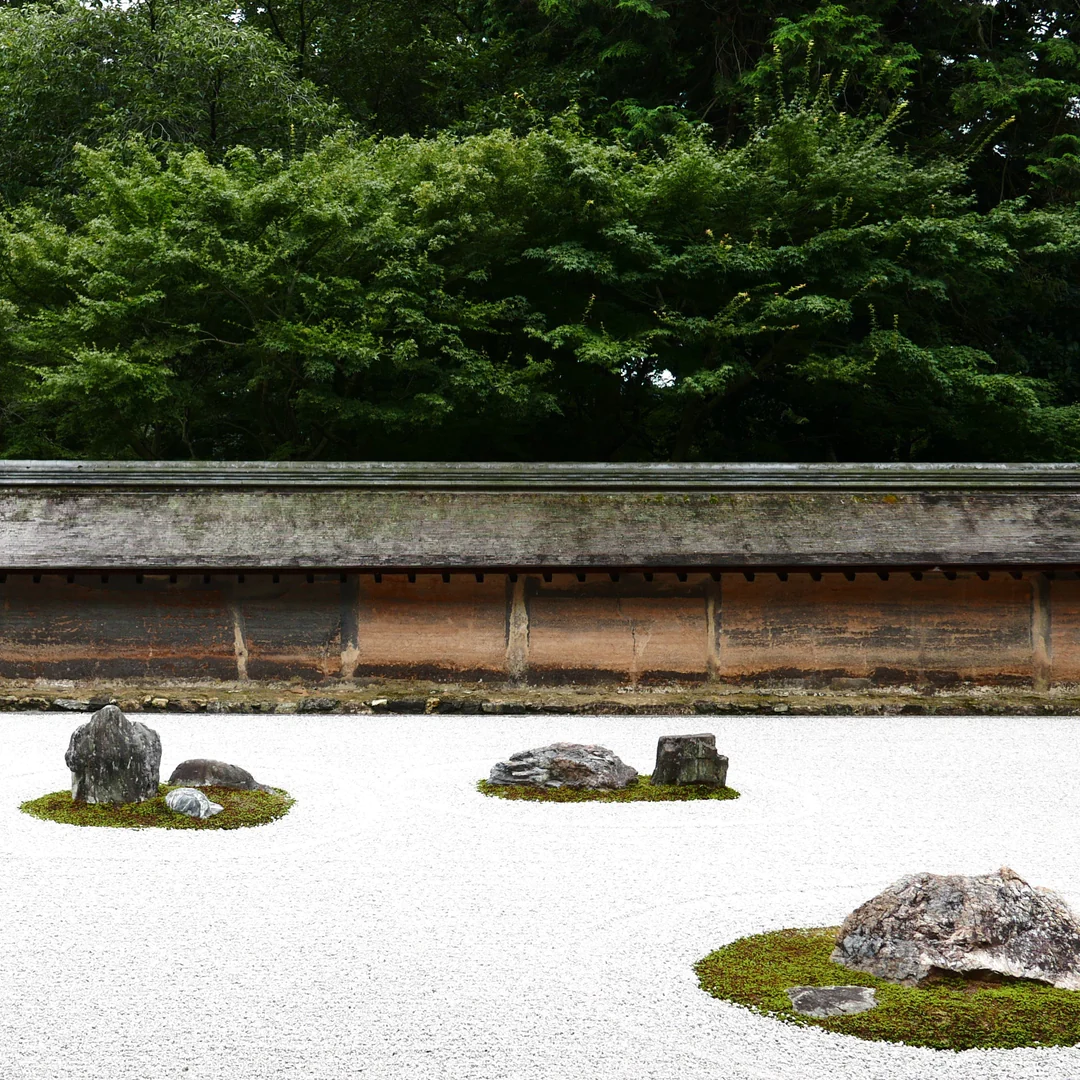The great Zen priest and garden designer Musō Soseki (1275-1351) once wrote that “He who distinguishes between the garden and [Zen] practice cannot be said to have found the Way.” This tour opens a path toward a fuller understanding of these enigmatic gardens, their history, design principles, and their most iconic examples, from medieval to contemporary times.
There are probably no more enigmatic gardens in the world than the Japanese Zen rock garden. Called “dry landscape” (karesansui) gardens in Japanese, our first encounters with these fields of stone, raked gravel, and flecks of moss may leave us wondering what they mean, who made them, and why, and how we are supposed to interpret them. Diving deep into examples spanning from the medieval past to the twenty-first century, we gain a richer appreciation of these remarkable works of garden art.
We begin with a close inspection of the earliest masterpieces that set the standard for centuries: Saihōji and Ryōanji. We explore their antecedents in Shinto and Chinese gardens, and Daoism and Zen philosophy, before turning to examine how these two iconic gardens have evolved over time. With these as precedent, we examine several additional iconic rock gardens to see how subtle shifts of design yielded strikingly different results. Finally, we turn towards designers eager to infuse the form with new energy, from the masterpiece Mirei Shigemori (1896-1975) created at Tōfukuji in 1939, to the stunning designs by the contemporary Zen priest and garden designer Shunmyo Masuno (1953-).
Led by an expert on Japanese history, Gavin James Campbell, this interactive seminar will explore the philosophy, history, and design of the Japanese Zen rock garden. Designed to inform curiosity as well as future travels, participants will come away with the tools necessary to more fully enjoy these stirring gardens. Gavin received a Ph.D. in history from the University of North Carolina, Chapel Hill, and came to Kyoto in 2001. He is a Ph.D. professor of history at Doshisha University. His teaching and research revolve around Japan’s cultural encounters with the West, particularly during the Edo, Meiji, Taisho and early Showa periods (1600-1940), and he has published on the history of foreign tourism and of Protestant missionaries in Japan. To further explore Japan’s global cultural encounters, he is currently writing a book on the history of Japanese menswear from the 1600s through the early 20th century. He is also an expert on Kyoto geisha culture and a frequent participant in geisha entertainment.
The Context Learning online seminar takes place November 7 at 7 pm, with a fee of $26.50. If you can’t make this date, a recording link will be sent to registrants following the seminar. Register at www.contextlearning.com

